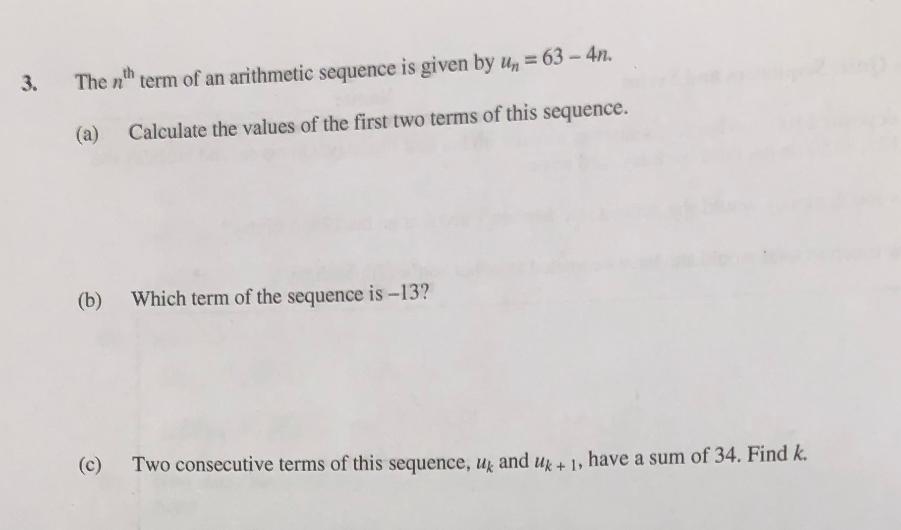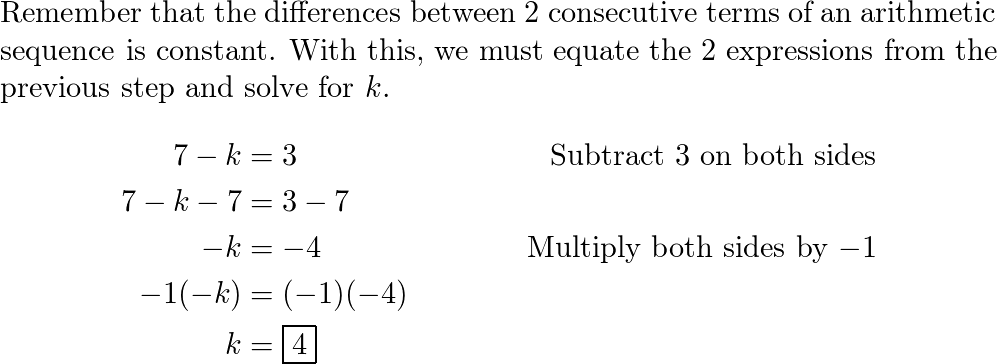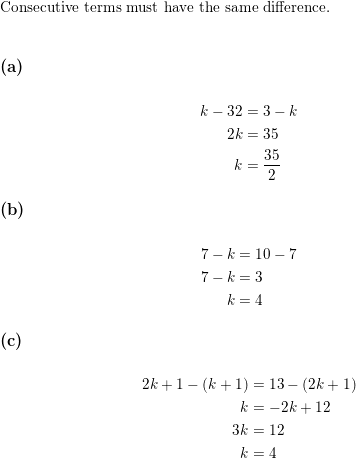How to prove that the following are also consecutive terms of an arithmetic sequence: (b+c), (c+a), (a+b) - Quora

find k given the consecutive arithmetic terms| Sequenc| Arithmetic Progression by Maths Magic - YouTube

find k given the consecutive arithmetic terms| Sequenc| Arithmetic Progression by Maths Magic - YouTube

The Difference between a number and its square | MYP| MAA | MAI| HL|SL| IGCSE| SAT by MATHS MAGIC - YouTube

Chapter 6 – Sequence & Series The Questions in this revision are taken from the book so you will be able to find the answers in there. - ppt download

















